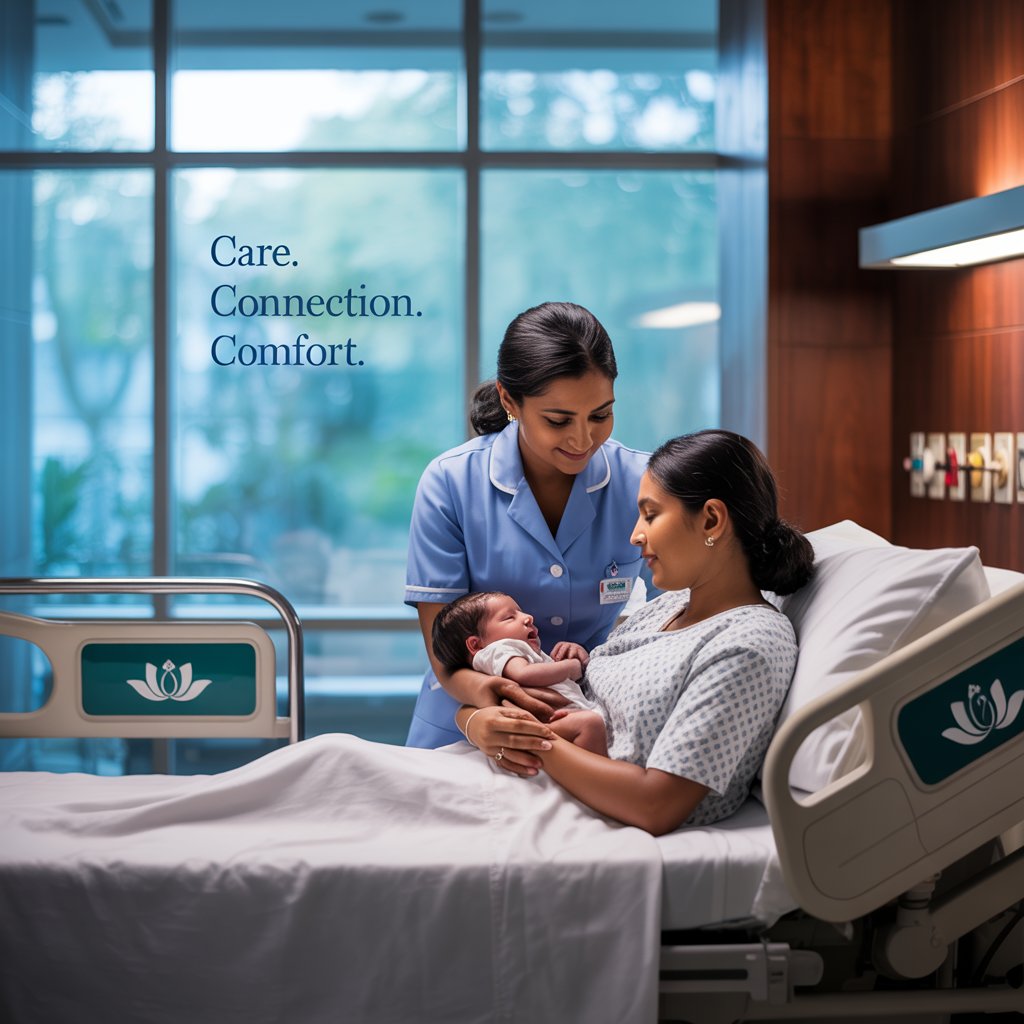Placement in Healthcare
Patient-Focused Care Nurses and midwives are essential to delivering care that attends to both the body and soul—especially through childbirth, recovery, and long-term illness. They ensure patients receive nurturing, respect, and comfort at every step of their treatment. In Germany, healthcare professionals work in a variety of settings depending on their training and specialization.
These include:
◘ Hospitals for short-term and acute medical care
◘ Long-term care homes for elderly or chronically ill patients
◘ Outpatient care where nurses visit patients in their homes
◘ Rehabilitation centers offering recovery support after illness or injury (both inpatient and outpatient)
◘ Palliative care services that provide comfort and quality of life for patients with serious or terminal illnesses
These diverse settings allow healthcare workers to serve people across all stages of life and illness.
Health Education & Empowerment
These professionals go beyond direct care. They coach patients and families on topics like newborn care, breastfeeding, hygiene, nutrition, and preventing disease—equipping communities with the knowledge to live healthier lives.
Collaborative Healthcare Experts
As certified members of healthcare teams, nurses and midwives work alongside doctors, specialists, and therapists to coordinate safe and timely care. Their contributions are particularly vital for women, children, seniors, and chronic patients.
Nursing Career Pathways in Germany
Germany provides a clear and structured progression for healthcare professionals,
adaptable to different qualifications and German language proficiency.
Ausbildung (Vocational Training)
Duration 3 years (full-time), combining classroom instruction with on-the-job training in hospitals, care homes, and outpatient clinics.
Outcomes Earn the recognized title “Pflegefachfrau” or “Pflegefachmann” upon passing a state exam—permitted to work across Germany and other EU countries under the new generalistic nursing law.
Curriculum Theoretical modules (Approx. 2,100 hours) and practical placements
(Approx. 2,500 hours) covering adult, elderly, and pediatric care, along with acute and psychiatric settings.
Assistant Nurse Training
Duration Typically, 1–2 years, depending on the state.
Role Support registered nurses with tasks like hygiene, mobility assistance, meal support, and documentation.
Benefit Serves as a practical introduction to nursing for individuals with basic
German skills, often leading into full nursing
Elderly Care Specialist
Focus Intensive preparation for working in assisted living and long-term care
settings.
Training Unlike earlier system Now integrated into the three-year Ausbildung, but standalone tracks or specialization remain available based on institution and state regulations.
Anerkennung (Recognition for International Nurses)
Purpose For nurses who earned credentials abroad, Germany offers equivalency recognition.
Process Includes transcript comparison (Gleichwertigkeitsprüfung), potential bridging courses (Anpassungslehrgang), and a knowledge test (Kenntnisprüfung) to align with German standards.
Visa support Recognition partnerships can facilitate visa issuance while final certification is pending.
Specializations & Ongoing Learning
After qualifying, professionals can pursue advanced training (Fachweiterbildung) in areas like intensive care, emergency nursing, oncology, geriatrics, palliative care, psychiatry, midwifery, pediatrics, wound management, dialysis, etc. —which generally take 1–2 years and typically include a final state-approved exam






